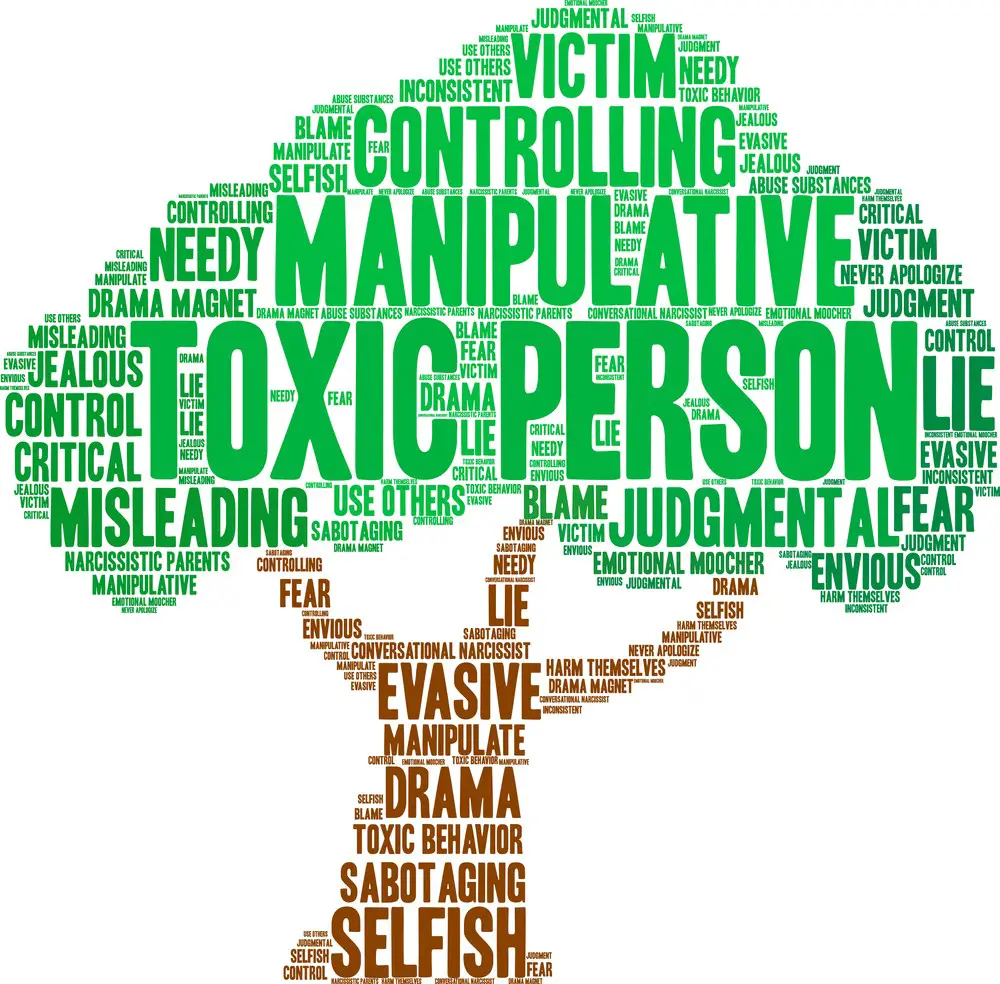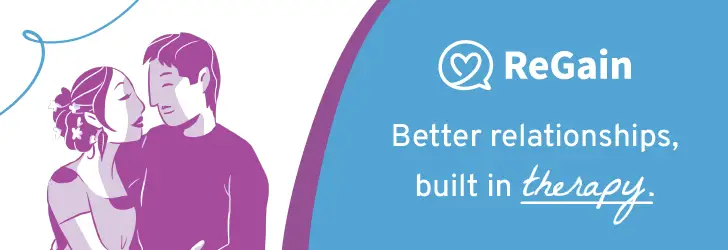As a BetterHelp affiliate, we receive compensation from BetterHelp if you purchase products or services through the links provided
Entering into a relationship is often an exciting endeavor, filled with hope and the joy of getting to know another person. Despite these positive beginnings, the reality is that not all relationships are healthy or destined to last. It is important to differentiate between a healthy, balanced partnership and an unhealthy one and learn when to walk away from the latter.
Unhealthy relationships can manifest in different ways, such as through manipulation, control, or emotional abuse. In some cases, the gradual erosion of trust and respect can be equally detrimental. Knowing when to leave a relationship requires introspection, understanding, and courage. Recognizing the impact of toxic interactions, decoding one’s emotions, and assessing the effects on personal life are crucial steps in the decision-making process.
Key Takeaways
- Identify and acknowledge the unhealthy aspects of a relationship
- Consider the emotional, personal, and financial consequences of staying or leaving
- Seek professional help and self-love in the post-breakup healing process
 Recognizing Unhealthy Relationships
Recognizing Unhealthy Relationships
Unhealthy relationships often involve a pattern of toxic behaviors that can cause significant harm to the individuals involved. Recognizing the signs of an unhealthy relationship is essential to protect oneself and one’s mental and emotional well-being.
One warning sign of a toxic relationship is a pattern of abusive behavior such as physical violence, emotional manipulation, or verbal assault. In some cases, abuse can be more subtle, such as gaslighting, wherein one partner manipulates the other’s perception of reality, causing them to doubt their judgment.
Another indicator of an unhealthy relationship is persistent and excessive control exerted by one partner over the other. This may manifest as financial control, isolating the person from friends and family, or monitoring their whereabouts and communications.
A lack of respect, trust, and open communication may also characterize an unhealthy relationship. For example, one partner may constantly belittle or shame the other, leading to self-esteem and personal autonomy breakdown. Furthermore, a lack of trust can lead to jealousy, suspicion, and the constant fear of betrayal.
In some toxic relationships, partners may engage in a power struggle, competing with one another rather than supporting one another’s growth and well-being. This unhealthy dynamic can result in frequent arguments and the inability to resolve conflicts constructively.
Lastly, an unhealthy relationship may involve a pattern of on-again, off-again breakups and reconciliations, creating a sense of instability and insecurity. This unpredictable pattern may cause emotional turmoil and make it difficult for partners to develop a secure attachment to one another.
Identifying these signs of an unhealthy relationship is crucial in deciding to walk away from a toxic partnership and prioritize self-care and personal well-being.
 The Impact of Toxic Interactions
The Impact of Toxic Interactions
Toxic interactions in a relationship can have severe consequences on an individual’s health and well-being, both mentally and physically. One significant effect is an increase in stress levels. As a result, it could lead to issues such as depression and anxiety, disrupting a person’s ability to function optimally.
Heightened stress might also cause mood swings, making individuals prone to experiencing more sad and negative feelings. This emotional pain can take a toll on a person’s mental health and, over time, lead to feelings of loneliness and isolation.
In addition to mental health, toxic interactions within a relationship can affect physical and emotional intimacy. Tension and emotional distance may ensue due to persistent negative encounters, which can diminish a couple’s connection and leave both partners feeling unsupported and unsatisfied. This lack of closeness can further exacerbate stress levels, hindering overall emotional health and well-being.
In conclusion, when faced with toxic interactions in a relationship, it is crucial to evaluate their impact on one’s health, stress, and emotional state. By understanding and acknowledging the risk factors, individuals can make informed decisions on whether to remain in the relationship or seek healthier alternatives for their overall well-being.
 Decoding Your Emotions
Decoding Your Emotions
In any relationship, emotions play a crucial role as they are the foundation for our positive and negative experiences. Understanding your emotions can help you decide whether to leave a relationship.
Recognizing the variety of emotions one may experience in a relationship is essential. This ranges from affection and happiness to feelings of grief and hopelessness. Affection is the bonding force in any relationship, fostering a strong emotional connection between partners. A healthy relationship should evoke joy and happiness, ultimately contributing to high self-esteem.
However, not all emotional experiences are positive. Recognizing negative emotions, such as grief and hopelessness, can indicate that the relationship is not nurturing your emotional well-being. Prolonged exposure to such feelings can harm one’s self-esteem, which is an essential aspect of personal satisfaction and development.
It is vital to reflect on your emotions and gain a deeper understanding of them. One way to achieve this is by maintaining open communication with your partner. Discussing how certain situations affect your emotions can help uncover patterns indicative of unhealthy relationship dynamics. Paying attention to your intuition is essential, as it can serve as an early warning system for potential issues.
Lastly, it is important to consider the balance between positive and negative emotions in the relationship. While every relationship goes through ups and downs, an overwhelming amount of negative emotions can be a sign that it is time to reassess the value of the relationship in your life. A well-balanced emotional state is key to a healthy, thriving relationship; understanding your emotions is an important step in achieving that balance.

Effects on Personal Life
Walking away from a relationship can significantly affect an individual’s life. The person’s living situation is one of the first aspects to be impacted. If they shared a home with their partner, they might need to find a new place to live or make arrangements for one person to move out. This transition can be stressful and may even lead to financial strain.
The end of a relationship can also cause a shift in the person’s friendships. Their mutual friends might be divided as they choose sides or decide to maintain their relationship with only one party. It is common for individuals to lose some friends during this process, as people struggle to cope with the changes and potential awkwardness.
Family dynamics can be affected as well. Family members may have developed bonds with their partners and have difficulty adjusting to the separation. Furthermore, if the couple has children, they must navigate co-parenting responsibilities, which can be a complex and emotional.
The breakup of a relationship can lead to a notable change in an individual’s personality and mental health. They might experience increased stress, anxiety, or depression, which, in turn, could cause shifts in their behavior or attitude. Some people may become more withdrawn, while others could display previously uncharacteristic personality traits.
Lastly, walking away from a relationship could force the person to address the “baggage” they’ve accumulated during the relationship. They might need to confront unresolved issues and identify the patterns that contributed to the dissolution of the partnership. This introspection can be challenging but is crucial for personal growth and making healthier relationship choices in the future.
Significance of Trust and Respect
Trust and respect are fundamental building blocks in any relationship. They serve as the foundation upon which a strong partnership is built. When trust and respect are present, individuals feel supported, valued, and confident in their relationship.
In a healthy relationship, trust enables partners to trust each other’s decisions, actions, and intentions. It lets both individuals feel secure and safe, knowing their partner has their best interests at heart. On the other hand, a lack of trust can lead to doubt, insecurity, and fear, ultimately causing the relationship to crumble.
Respect goes hand in hand with trust, which encompasses valuing one another’s opinions, beliefs, and values. A respectful relationship promotes open communication and encourages exchanging ideas, fostering an environment where both partners feel heard and acknowledged.
Criticism, when constructive, can be a useful tool in supporting a partner’s growth and development in a respectful relationship. However, excessive or unfounded criticism can lead to defensiveness, as individuals may feel the need to protect themselves from negative judgments. Conversely, in a trusting and respectful partnership, people can accept constructive criticism objectively and work together toward self-improvement.
Defensiveness, in turn, can lead to stonewalling, another detrimental relationship behavior. Stonewalling occurs when one partner shuts down or refuses to engage in conversation, creating a barrier that hinders communication and prevents the resolution of conflicts. Trust and respect help mitigate stonewalling by keeping channels of communication open and promoting understanding and empathy.
In summary, trust and respect are essential elements in fostering a healthy and thriving relationship. They are the foundation for a strong partnership and catalysts for effective communication and conflict resolution. Maintaining a relationship built on trust and respect ultimately leads to a more fulfilling and satisfying partnership for both individuals involved.
Understanding the Role of Communication
Communication is a crucial factor in maintaining a strong and healthy relationship. It is a foundation for any successful and lasting connection between two individuals. Without clear and open communication, misunderstandings can arise, leading to unresolved conflicts and a weakened bond between partners.
In a relationship, communication goes far beyond just talking and listening. It includes understanding the emotions, thoughts, and intentions of oneself and the other person. An essential aspect of effective communication is expressing oneself honestly and openly. This entails sharing one’s feelings, needs, and desires without hiding anything or keeping secrets.
One effective way to improve communication in a relationship is through writing. Written communication can aid in sorting out thoughts and emotions, allowing partners to convey their messages more clearly. Writing can also provide a safe and structured way to express difficult emotions. For example, sharing a personal journal entry or writing a heartfelt letter can lead to constructive conversations and a deeper understanding of each other’s experiences and perspectives.
Moreover, non-verbal communication is significant in establishing and maintaining a connection. Examples of non-verbal communication include gestures, facial expressions, body language, and tone of voice. Awareness of these non-verbal cues can enhance one’s ability to empathize and connect more intimately with their partner.
In conclusion, effective communication encompasses various aspects, including verbal and non-verbal cues, honesty, openness, and writing as a tool. Prioritizing communication in a relationship can result in a stronger, more resilient connection. If communication is continuously neglected, it may be a sign to reevaluate and consider walking away from the relationship.
Financial Factors to Ponder
Financial factors often play a significant role when deciding whether to leave a relationship. Money-related issues can be a significant source of stress in relationships and may eventually lead to their downfall. Both men and women can experience financial burdens or pressure, which might evoke jealousy or dissatisfaction.
One common financial factor that can strain relationships is the disparity in income levels. If one partner earns significantly more than the other, it may create a power imbalance. The lower earner might feel dependent or inferior, while the higher earner might feel resentful or burdened with supporting their partner financially. Both parties must discuss their expectations and boundaries surrounding money in such cases.
Debt is another critical issue to consider. If one partner brings substantial debt into the relationship, it can create tension and insecurity for both individuals. In some cases, the indebted individual might feel guilty or burdened, while their partner might worry about the long-term financial consequences. Open communication about managing and repaying debts, respecting each other’s financial autonomy, and planning for the future can help ease such concerns.
Lastly, assessing whether one’s partner has healthy financial habits is crucial. For example, if an individual frequently spends beyond their means or struggles to maintain a stable job, it might lead to instability and stress in the relationship. Conversely, a partner who is overly frugal or restrictive with their spending could also create tension. Observing and discussing financial patterns and habits can provide insight into whether a relationship is sustainable in the long run.
In conclusion, looking closely at financial factors is essential when evaluating whether to continue a relationship or walk away. Disparity in income, debt, and financial habits can lead to significant stress and tension in a relationship. Maintaining open communication and addressing financial concerns can help couples determine if their partnership is worth persevering or if it is time to part ways.

Steps to Leave a Relationship
Leaving a relationship can be difficult, but sometimes it is necessary for well-being and personal growth. Here are some practical steps to help you through separating from a partner when the time comes to walk away from a relationship.
1. Evaluate and reflect: Before initiating a breakup, it is essential that you thoroughly evaluate your relationship and determine its issues and negative aspects. Reflect on why you believe walking away is right and whether the problems are irreconcilable.
2. Consult with a trusted person: Friends, family members, or even a mental health professional can be valuable sources of support during this time. They can provide perspective and advice to help you decide about leaving the relationship.
3. Develop a clear plan: Plan the steps you will take for separation, including financial arrangements, housing, and other important logistics. Ensure you have all the necessary paperwork, such as legal documents, if the breakup involves a formal divorce or custody agreement.
4. Communicate with your partner: Open, honest communication is crucial when discussing the end of a relationship. Share your thoughts and feelings gently but assertively, and be prepared for their reaction, which might involve sadness, anger, or denial.
5. Establish boundaries: After the breakup, it is important to establish clear boundaries with your ex-partner. This can include limiting or cutting off contact if necessary and deciding on the extent of mutual involvement in the lives of children or common friends.
6. Seek support: Throughout the process of leaving a relationship, it is essential to lean on the support of friends, family, or a support group. They can provide guidance, comfort, and strength during emotional turmoil.
Remember, breaking up is rarely easy, but following these steps can help you navigate it in a healthy, productive, and ultimately rewarding manner.
 When to Seek Professional Help
When to Seek Professional Help
Recognizing when to seek professional help in a relationship can be challenging but crucial for well-being. A few signs indicate it might be time to contact a therapist, counselor, or support group for assistance.
One of the primary reasons to seek professional help is when communication in the relationship has broken down. Partners might find it difficult to address issues or solve problems independently. A therapist or counselor can help guide the couple through these challenging conversations, enabling them to establish clearer communication and understanding.
Another reason to consider professional help is when one or both partners struggle with mental health issues such as depression, anxiety, or addiction. A therapist can help the individual and support the couple in developing coping strategies and planning for the future.
If a relationship is characterized by consistent conflict, seeking professional assistance may be necessary. Continuous arguing can wear on both partners and sometimes an impartial third party can help navigate these disagreements. A trained professional can provide the couple with tools to manage conflicts and foster a healthier environment.
In emotional or physical abuse cases, seeking professional help is crucial. The National Domestic Violence Hotline offers support and resources to those experiencing abuse in their relationships. It is important to remember that no one deserves to be mistreated, and reaching out for support can be the first step toward safety and healing.
Lastly, if one partner is contemplating ending the relationship but is struggling with the decision, counseling can offer guidance and support during this difficult process. Professional help can provide clarity, allowing both individuals to gain insight into their feelings and desires for the future.
In any of these situations, seeking help from a therapist, counselor, or support group is essential for one’s well-being and the relationship’s overall health.
 Dealing With Post-Breakup Emotions
Dealing With Post-Breakup Emotions
Dealing with post-breakup emotions can be challenging and overwhelming. Recognizing and accepting these feelings is essential to heal and move forward. In the aftermath of a relationship, individuals may experience a range of emotions, such as sadness, fear, guilt, and a sense of longing.
Sadness is a natural response to the loss of a relationship. Acknowledging this feeling and allowing oneself to grieve at a healthy pace is essential. Seeking support from friends, family, or a therapist can offer valuable comfort and guidance. Engaging in activities that bring joy can also help elevate mood and maintain emotional balance.
Fear is another common emotion experienced after a breakup, especially the fear of being alone. This fear might manifest in various ways, such as reluctance to be independent or pursue new relationships. Addressing this fear involves validating one’s self-worth and building self-confidence. Engaging in self-reflection and setting personal goals can be beneficial in moving past this apprehension.
Feeling guilty or responsible for the end of a relationship is natural. However, it is crucial to remember that relationships are a two-way street, and bearing the entire burden of a failed relationship is unreasonable. Reflecting on shared experiences and accepting personal growth can help individuals release guilt and better understand the reasons behind the breakup.
Individuals may also feel afraid of being alone. The fear of experiencing loneliness is common, but it’s essential to recognize that being single can offer opportunities for growth and self-discovery. Cultivating new hobbies, interests, and friendships can contribute to embracing solitude and reducing the fear of being alone.
Dealing with post-breakup emotions requires patience, self-compassion, and time. By acknowledging and addressing these emotions individually, individuals can gain resilience and ultimately find peace in moving on from a relationship.
The Journey Towards Self-Love
The journey toward self-love often entails discovering one’s true worth, healing from past hurts, and recognizing unhealthy relationship patterns. Developing self-love is essential because it serves as the foundation for a happy and fulfilling relationship. When individuals truly love themselves, they are more likely to attract a partner who values and respects them.
One step in cultivating self-love is to establish personal boundaries. This involves clearly defining acceptable and unacceptable behavior from others and sticking to these standards. By doing so, a person can maintain their sense of self-worth and ensure they are treated with the love and respect they deserve.
Another aspect of self-love is practicing self-compassion. This means treating oneself with kindness and understanding, particularly during difficult times. Accepting one’s flaws and imperfections helps to develop a healthier relationship with oneself and sets the stage for a more rewarding romantic partnership.
Fostering self-love also requires prioritizing self-care. This can include physical, emotional, and mental well-being practices such as exercise, therapy, meditation, and ample leisure time. One is better equipped to engage in a balanced and loving relationship with a partner by tending to one’s needs.
Knowing when to leave a relationship is a crucial part of self-love. People must be honest about the state of their relationship and whether it aligns with their values, needs, and goals. Letting go of a relationship that is not contributing to one’s happiness and well-being can be both empowering and an act of self-love.
In conclusion, self-love is a lifelong journey that requires consistent effort and attention. An individual can confidently embrace a happy and rewarding romantic partnership by cultivating self-compassion, establishing personal boundaries, prioritizing self-care, and knowing when to walk away from a relationship.
Frequently Asked Questions
How do you know if a relationship is worth fighting for?
A relationship is worth fighting for when both partners are committed to growth, communicate effectively, and can resolve conflicts respectfully. They should also share common values and goals and be willing to invest time and energy into the relationship.
What signs indicate you should end a long-term relationship?
Indications that a long-term relationship should end include consistent disrespect, repeated infidelity, lack of support, emotional or physical abuse, and a general feeling of unhappiness or discontentment. Loss of trust, communication breakdown, and incompatible future goals also signal the need for a breakup.
When is it time to end an unrewarding friendship?
Unrewarding friendships often involve one-sided effort, a lack of interest in each other’s lives, and frequent feelings of being used or disrespected. It may be time to walk away when a friendship causes more harm than good or negatively affects one’s mental health.
What factors show a relationship has no future?
A relationship may have no future when there is an ongoing lack of trust, unwillingness to compromise, or an inability to envision a shared future. In addition, when partners have vastly different values, priorities, or goals, it can indicate a lack of long-term potential.
When should you prioritize self-care over your love for someone?
Prioritizing self-care over love for someone is essential when maintaining the relationship compromises one’s mental, emotional, or physical well-being. It’s crucial to set boundaries, seek support, and take time to maintain a healthy balance.
How do you recognize a relationship is emotionally draining?
An emotionally draining relationship might involve frequent arguments, disrespectful behavior, a lack of empathy, or constant criticism. Partners may feel unsupported, neglected, or undervalued, ultimately leading to exhaustion and negatively impacting overall well-being.
Jacob Maslow delves deep into relationship dynamics in his article “When to Walk Away from a Relationship.” A staunch advocate for mental health, Jacob manages his mental well-being with Lexapro and has a rich history with therapeutic interventions. His narrative, marked by challenges stemming from an ex-partner’s severe narcissistic tendencies, has imbued him with a profound understanding of the intricacies of relationships. Jacob’s bond with his children is strained due to ongoing legal battles, and his therapeutic daily walks shape his holistic take on when it’s time to bid adieu to a relationship. Through his writings, he offers solace and guidance to those grappling with narcissistic partners and their mental health challenges. Beyond this, his legal platform is a beacon for those navigating the murky waters of custody disputes and uncooperative ex-partners.
- Stress Management: What is the Relationship Between Stress and Addiction? - June 28, 2024
- Exploring Techniques to Maintain a Healthy Lifestyle without Drugs - May 28, 2024
- How Acupuncture Helps Treat Chronic Fatigue Syndrome - May 28, 2024
This site contains affiliate links to products. We will receive a commission for purchases made through these links.


 Recognizing Unhealthy Relationships
Recognizing Unhealthy Relationships The Impact of Toxic Interactions
The Impact of Toxic Interactions Decoding Your Emotions
Decoding Your Emotions
 When to Seek Professional Help
When to Seek Professional Help Dealing With Post-Breakup Emotions
Dealing With Post-Breakup Emotions


